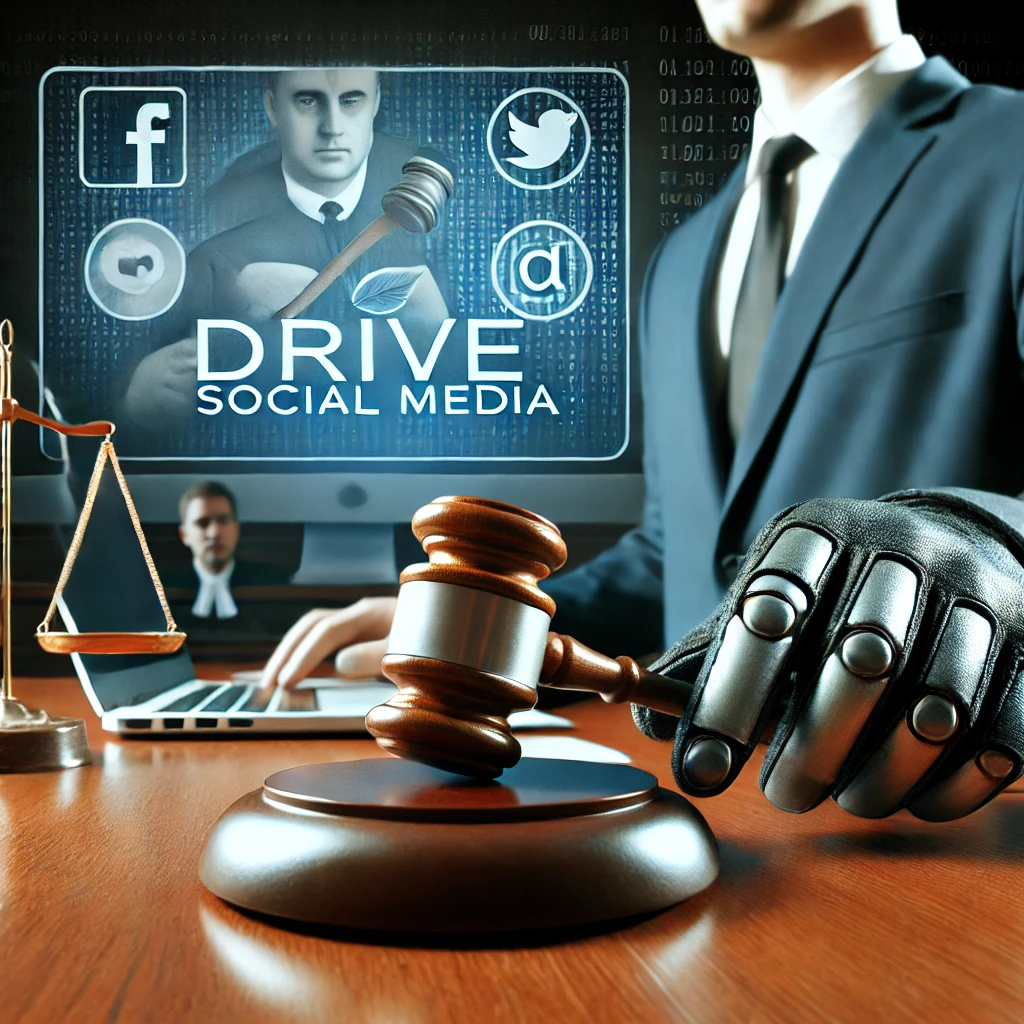Introduction
The Drive Social Media lawsuit claim has turned into a hotly debated issue in the computerized showcasing world, bringing up issues about straightforwardness, client connections, and lawful responsibility. As a notable office work in web-based entertainment showcasing, Drive Online Entertainment is currently confronting serious charges that could influence its standing and business tasks. However, what precisely prompted this fight in court, and what’s the significance here for organizations depending via virtual entertainment showcasing? How about we plunge into the subtleties.
What is Drive Social Media?
Drive Social Media is a computerized showcasing organization that has practical experience in assisting organizations with developing through designated online entertainment methodologies. They offer publicizing arrangements, information driven advertising efforts, and online entertainment the executives. The organization has worked with different clients, promising quantifiable outcomes through paid virtual entertainment promoting.
Understanding the Drive Social Media Lawsuit
The lawsuit against Drive Social Media has sparked controversy, with allegations that challenge the company’s business practices. While details vary, the core issue revolves around claims of misleading marketing tactics, contract disputes, and potential breaches of business agreements.
Key Allegations Against Drive Social Media
So, what’s at the heart of the lawsuit? Here are some of the major claims:
- False advertising – Accusations that Drive Social Media exaggerated marketing results.
- Contractual disputes – Alleged issues with unclear or misleading contracts.
- Unfulfilled promises – Clients claim they did not receive the services promised.
Legal Basis of the Lawsuit
The case primarily hinges on consumer protection laws, contract law, and advertising regulations. If the court finds that Drive Social Media engaged in deceptive business practices, they could face financial penalties, contract voiding, or even operational restrictions.
How Drive Social Media Responded
The organization has denied any bad behavior, keeping up with that they work straightforwardly and convey results as guaranteed. Their lawful group is effectively battling the claims, contending that disappointed clients might be distorting their encounters.
Impact on Clients and Businesses
For organizations that depend on Drive Web-based Entertainment’s administrations, the claim raises worries about the office’s believability and steadiness. A few clients might be reevaluating their organizations, while others are trusting that the case will unfurl prior to deciding.
Industry Responses to the Claim
The claim has started conversations in the showcasing scene, with specialists saying something regarding whether this is a segregated case or a side effect of bigger issues in computerized promoting. Numerous organizations are involving this case as a suggestion to guarantee straightforwardness in their tasks.
Social Media Marketing and Legitimate Difficulties
This case isn’t the first — or the last — claim in the computerized advertising space. The business is loaded up with lawful hazy situations, especially with regards to execution ensures, promotion spend straightforwardness, and moral publicizing rehearses.
Case Studies: Similar Lawsuits in the Industry
Other agencies have faced legal trouble for similar reasons:
- Facebook’s lawsuit against a marketing agency for fake engagement tactics.
- Google’s crackdown on deceptive ad agencies that manipulated PPC campaigns.
What This Means for Social Media Agencies
The lawsuit serves as a warning for social media agencies to be more transparent and ethical in their practices.
It features the significance of clear agreements, fair promoting, and keeping up areas of strength for with connections.
Safeguarding Your Business from Legitimate Issues
In the event that you’re running a promoting organization, this is the way to avoid legitimate difficulty:
- Be transparent – Set realistic expectations with clients.
- Have clear contracts – Avoid vague promises and ambiguous terms.
- Stay compliant – Follow advertising regulations and consumer protection laws.
Potential Outcomes of the Lawsuit
While it’s too early to predict the final verdict, possible outcomes include:
- Settlement – A financial agreement between Drive Social Media and plaintiffs.
- Court ruling against Drive Social Media – Resulting in fines and legal consequences.
- Case dismissal – If the claims lack sufficient evidence.
Lessons Learned from the Drive Social Media Lawsuit
Businesses and marketers can take away key lessons from this case:
- Always verify marketing claims before signing contracts.
- Agencies must prioritize transparency in their business operations.
- Legal accountability is growing in the social media marketing industry.
The Future of Drive Social Media
Regardless of the lawsuit’s outcome, Drive Social Media will likely undergo changes. Whether it’s improved policies, rebranding, or a shift in strategy, the company will need to rebuild trust within the industry.
Conclusion
The Drive Social Media lawsuit is a significant second for the computerized showcasing industry. It fills in as an update that moral strategic policies and lawful consistence are non-debatable. As the case unfurls, organizations and advertisers the same ought to give close consideration — on the grounds that the result could start a trend for the eventual fate of web-based entertainment showcasing.
FAQs
1. What is Drive Social Media being sued for?
The claim includes charges of calculated deception, contract debates, and unfulfilled promoting guarantees.
2. How has Drive Social Media responded to the lawsuit?
The company denies wrongdoing and is actively defending itself in court.
3. Will this lawsuit affect Drive Social Media’s clients?
Some clients may reconsider their contracts, but the full impact depends on the case outcome.
4.What examples could other showcasing offices at any point gain from this?
Straightforwardness, clear agreements, and moral showcasing rehearses are urgent to keep away from lawful issues.
5. What happens if Drive Social Media loses the case?
They may face financial penalties, contract voiding, or business restrictions, depending on the ruling.
